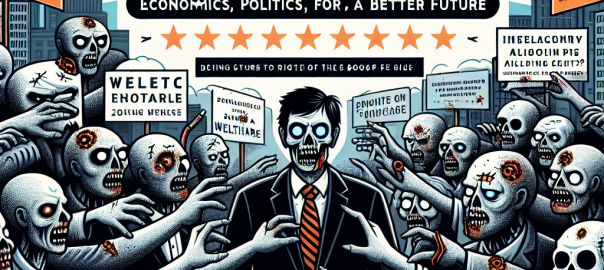 Pääoma 2000-luvulla by Thomas Piketty
Pääoma 2000-luvulla by Thomas Piketty
My rating: 5 of 5 stars
Eittämättä yksi merkittävimpiä taloustieteen kirjoja 2000-luvulla. Oma kiinnostukseni heräsi erityisesti Björn Wahlroosin “Talouden kymmenen tuhoisinta ajatusta” -kirjassaan esittämän kritiikin vuoksi. Nalle on toki taitava talousmies ja omaa kunnioitettavan akateemisen historian, mutta tällä kertaa kritiikki meni pieleen. Hän selkeästikin oli lukenut kirjan hyvin pinnallisesti, ja on täysin jäävi arvostelemaan kirjaa, jonka pääajatus on estää koroillaeläjien yhteiskuntien synty.
Kirjan pääajatus on, että kun pääoman tuoton kasvu ylittää kansantulon kasvun, epäyhtälö r > g, pääomaa alkaa pitkän ajan kuluessa kertymään yksityisille henkilöille, instituutioille ja (öljy)maille niin paljon, että syntyy samanlainen koroillaeläjien yhteiskunta, kuin ennen maailmansotia vielä oli olemassa.
Nallehan on itse omaisuutensa luonut taitavien ja onnekkaiden sijoitusten kautta. Hän on silti loistava esimerkki siitä, mitä kirja tarkoittaa koroillaeläjillä. Jotkut luovat valtavan omaisuuden omalla työllään. Toiset saavat sen perinnöllä tai pääsevät osallisiksi naimalla koroillaeläjän.
Kun on tarpeeksi omaisuutta, niin sen vuotuiset tuotot ovat sitä verta suuret, että vaikka tuotoista kuluttaisi vuodessa yli 100 kertaa mediaanipalkan verran, niin pystyisi edelleen sijoittamaan uudelleen niin paljon, että pääoma jatkaa kasvamistaan yhä kiihtyvässä tahdissa.
Tämähän ei Pikettyn mukaan ole vielä ongelma. Ongelma on se, että pääoman kasvaessa tarpeeksi suureksi, se jatkaa kasvamistaan loputtomasti keskittyen hyvin harvoille, ja sen jälkeen syntyy ihmisryhmä, joille työllä ei ole enää mitään merkitystä, koska työstä ei koskaan voi saada vastaavia tuottoja kuin valtavasta omaisuudesta. Enemmistölle ihmisistä taas ei jää kansantalouden kasvusta juuri mitään käteen, kun se keskittyy superrikkaille. Epäyhtälö r > g. Tällainen tilanne oli vielä ennen maailmansotia. Edelleenkin epäyhtälö r > g pitää paikkansa, ja Pikettyn pahin skenaario on, että jossain vaiheessa luisumme koroillaeläjien maailmaan. Hän ei väitä, että se on vääjäämätöntä, mutta mahdollista.
Koska nykyaikana ihmisten elinikä on jo niin korkea, että perintö tulee varsin myöhään, kannattaa lapsilleen antaa valtavia lahjoituksia jo huomattavasti varhaisemmin. Tämä on tietysti sitä kannattavampaa, mitä alhaisempi lahja- ja perintövero on. Kukahan suomalainen tästä tulee mieleen?
Pikettyn kritiikki ei siis sinällään keskity valtavien omaisuuksien keräämiseen omalla työllään, vaan siihen, että syntyy sukuja ja instituutioita, joiden ja joissa ei enää koskaan tarvitse tehdä tuottavaa työtä tai toimintoja. Työn tai muun tuottavan toiminnan sijaan on kannattavampaa elää perimänsä pääoman koroilla tai yrittää edes päästä naimalla tällaiseen sukuun.
Piketty kritisoi myös superjohtajien valtavia tuloja, jotka mm. Yhdysvalloissa aina 1970-lukuun asti estettiin yhdellä maailman kovimmista progressioista, kunnes tätä alettiin pikkuhiljaa laskemaan ja päästiin alhaisimpaan tasoon Reaganin kaudella. Pikettyn huoli sinällään valtavien palkkojen suhteen ei ole kertymättä jääneet verot, koska suurituloisia, puhumme useista miljoonista, on sen verran vähän, vaan yhteiskunnallisen eriarvoisuuden kasvaminen.
Piketty nostaa esiin yhteiskuntien nykyisen velkaantumisasteen, joka lienee ongelma, jota taloustieteilijät eivät yleisesti ottaen kiistä. Velat ovat kuitenkin huomattavasti pienempiä, kuin yksityinen varallisuus. Euroopan maista suurin yksityinen varallisuus on Italialla ja Espanjalla. Nämä ovat myös yhdet Euroopan velkaantuneimmista maista. Euroopan velat muutoinkin alittavat reilusti yksityisen omaisuuden. Euroopan yksityinen omaisuus on maailman suurin ja esimerkiksi 20 kertaa suurempi, kuin Kiinan omistamat ulkomaiset varat. Kiina ei siis ihan heti ole ostamassa koko maailma.
Ratkaisuksi siihen, ettei koroillaeläjien yhteiskuntia synny uudelleen, eli paluuseen aikaan ennen maailmansotia, sekä velkaantumiseen, Piketty tarjoaa globaalia progressiivista pääomaveroa. Toki hän itsekin myöntää, että ajatus on sangen utopistinen, minkä Nallekin omassa kritiikissään huomioi. Utopistinen ajatuskin voi olla silti toimiva.
Piketty huomauttaa, että olihan valuutta ilman kotimaatakin utopistinen ajatus, mutta silti euro syntyi. Piketty tosin ei näe eurossa oikein mitään hyvää, toisin kuin ehdotuksessaan globaalisista progressiivisesta pääomaverosta.
Piketty ei väitä aineistonsa olevan täydellistä, mutta se kattaa valtavan pitkän aikajanan aina 1700-luvulta nykypäivään. Siksi hänen analyysinsä lienee melko paikkansa pitävää, vaikka epävarmuustekijöitä tietysti on.
Onko hänen tarjoamansa ratkaisu utopiaa, vai toteutettavissa; sitä en tiedä. Yhdysvaltojen toteuttama Foreign Account Tax Compliance Act (FATCA) tuntuu joka tapauksessa toimivan melko tehokkaasti, ja harva yhdysvaltalainen pääsee veroja pakoon muuten, kuin luopumalla kansalaisuudesta. Siinä mielessä vastaavan painostuksen alla globaali progressiivinen pääomaverokin lienisi toteustuskelpoinen, jos valtiot pääsisivät siitä yhteisymmärrykseen. Jälkimmäinen tosin lienee utopiaa. Edes Euroopan maiden välillä ei ole kyetty toteuttamaan FATCA:n kaltaista järjestelmää.
Yhtäkaikki, kirja on erittäin mielenkiintoinen katsaus tulo- ja varallisuuseroihin ja paikoin sangen leppoisaa luettavaa viitteineen kaunokirjallisuuteen.
View all my reviews
Donate
Wallet address of bitcoin
13JDhP1YScpJosCbkXwWUeS
Like this:
Like Loading...
 Girl in a Band by Kim Gordon
Girl in a Band by Kim Gordon













